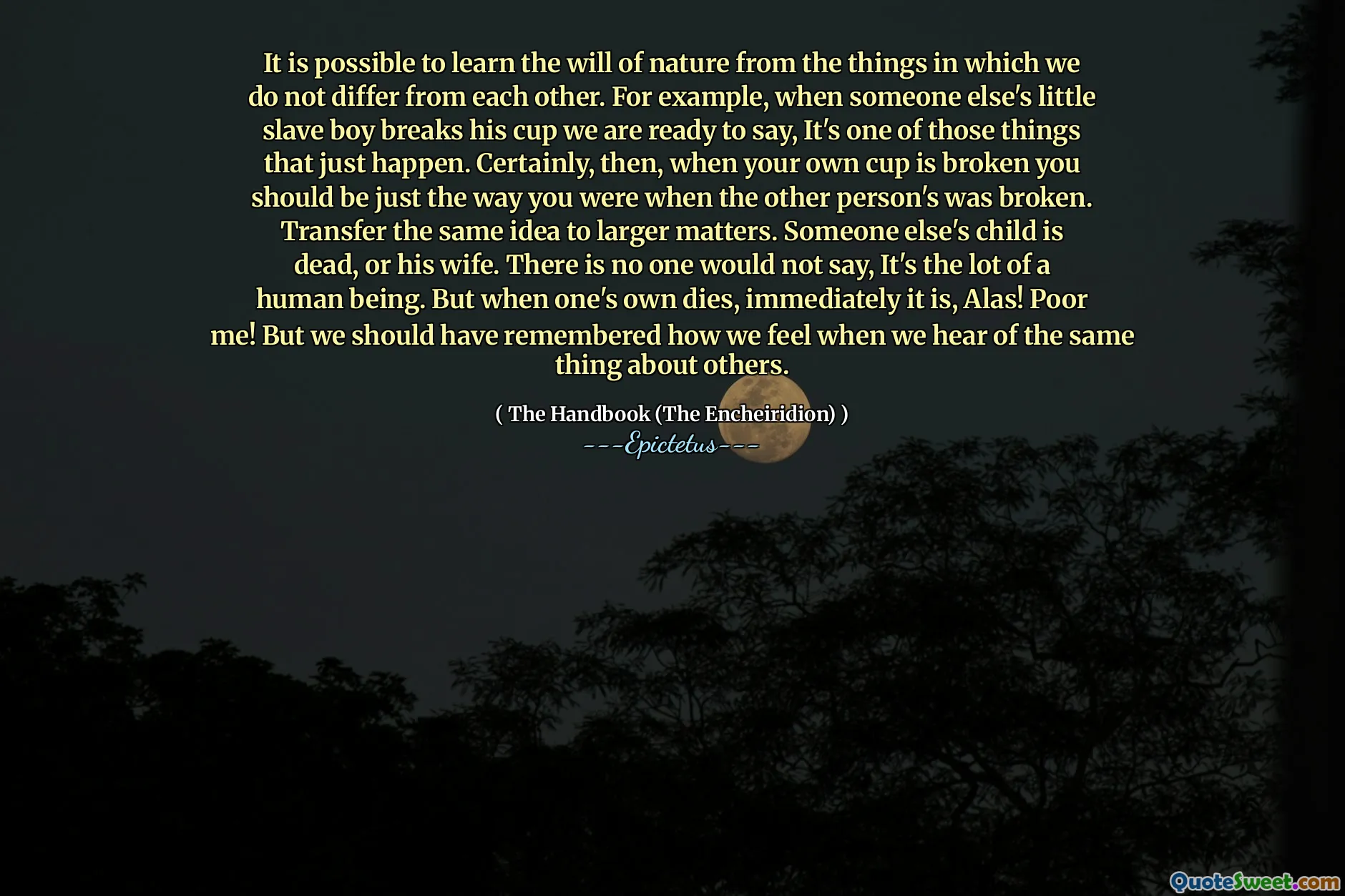
It is possible to learn the will of nature from the things in which we do not differ from each other. For example, when someone else's little slave boy breaks his cup we are ready to say, It's one of those things that just happen. Certainly, then, when your own cup is broken you should be just the way you were when the other person's was broken. Transfer the same idea to larger matters. Someone else's child is dead, or his wife. There is no one would not say, It's the lot of a human being. But when one's own dies, immediately it is, Alas! Poor me! But we should have remembered how we feel when we hear of the same thing about others.
📖 Epictetus
In the quote from Epictetus' "The Handbook," he emphasizes the importance of maintaining perspective on life's hardships. He suggests that we often react differently to the misfortunes of others compared to our own. For instance, when someone else's possessions or loved ones are lost, we tend to rationalize these events as part of life. This reflects our understanding that suffering and loss are universal experiences.
Epictetus encourages us to apply the same understanding to our own situations. When faced with personal tragedy, we often focus on our suffering rather than recognizing it as a shared human experience. By remembering how we respond to others' misfortunes, we can cultivate acceptance and resilience, ultimately leading to a more balanced emotional state in the face of our own challenges.






